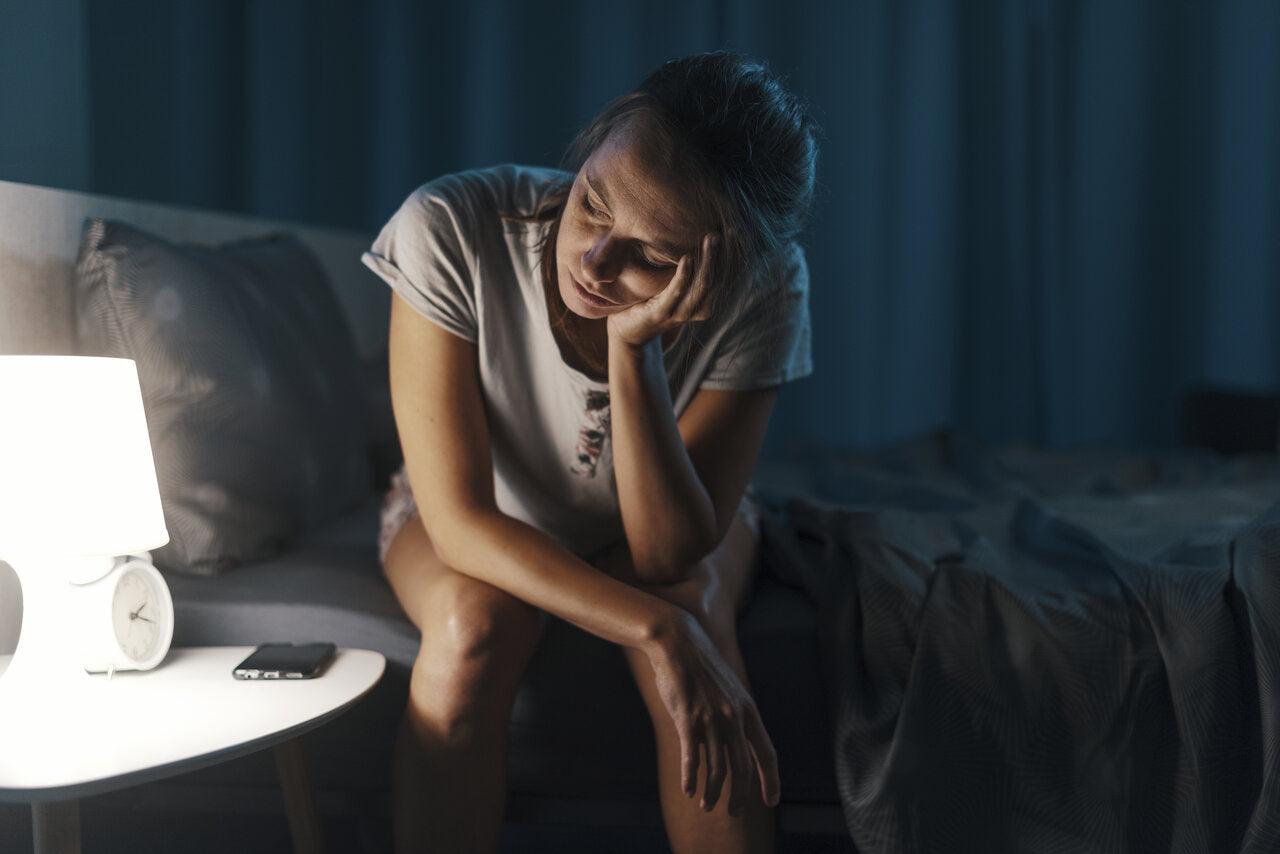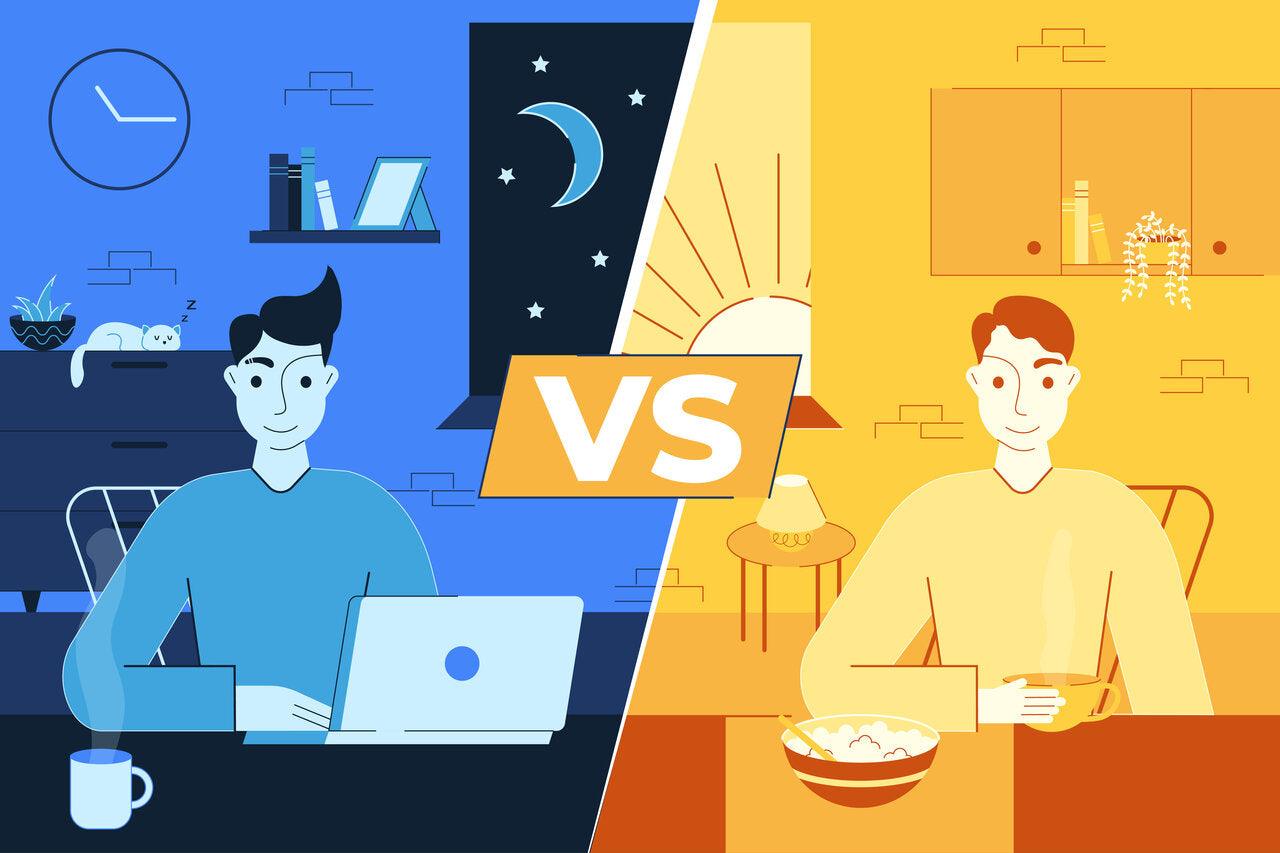What is insomnia? When someone says they suffer from insomnia, you may well question them, perhaps even think “Really, you’re always asleep before me!” but did you know there are 5 different types of insomnia? Let us tell you more…
No doubt we all have experienced a time in our lives when our sleep has been interrupted, but did you realise even the slightest change is classed as insomnia.
What is Acute Insomnia?
Firstly there is acute insomnia. Example causes of acute insomnia include changes in the environment such as a house move, school or work related stress or time zone changes.
Acute insomnia, also known as adjustment insomnia, is normal and usually rectifies itself within a few days but can take up to a month. New additions to your household such as babies and animals, can both keep you up at night with their antics.
However if you are lucky, both of these should fall into a routine of their own and give you back yours. Stress at work or school exams can equally resolve itself, and your sleep will return to normal.
If after a few weeks or sometimes months, things don’t return to normal and your struggle to fall asleep continues, you need to read on!
What is Chronic Insomnia?
If your sleep disturbance lasts longer than a few weeks or a month, perhaps it’s not every night but you experience at least 3 nights out of 7 of disturbed sleep, then this can be described as Chronic Insomnia.
The reasons for chronic insomnia are broad, it can be medically induced, from medication, illness or psychological disorders such as depression, bipolar or anxiety.
What is important is that you try to find out the underlying causes and reasons for your Chronic Insomnia. If left untreated, Chronic Insomnia may also contribute to serious health problems, including heart disease, stroke, obesity, diabetes, depression and dementia – and it shortens your life expectancy.
What is Onset Insomnia?
If you have difficulty initially falling to sleep, perhaps you feel tired but when you get into bed your brain is working overtime. No matter how hard you try to relax, your body says no!
While there are different reasons for this, an important factor is due to a poor lifestyle for sleep. There are things you can do in order to improve your chances of falling asleep – try cutting out caffeine, blue screens and any other stimulants that awaken your senses. It’s always a good idea to have a good healthy bedtime routine, so your brain starts to slow down and your body goes into sleep mode when you want and need it to.
It’s important to note that this is not going to happen overnight. It takes time to adjust your body’s routine and Circadian Rhythm, but it’s so critical to make these changes today, to give yourself the best chances of getting a good night’s sleep.
What is Maintenance Insomnia?
Picture this, you manage to read your book to the last page of the chapter as your eyes are falling, but within a few hours, you’re wide awake! Felling bright eyed and bushy tailed ready to start the day, but you’ve only been asleep for 2-3 hours!
Perhaps you wake up feeling groggy due to allergies or even in pain. This can be incredibly frustrating, as it disturbs your sleep and then you spend the next hour or two trying to fall back to sleep.
Constant waking up in the night not only annoys you, but you know that once you fall back to sleep, the alarm will be going off just as this happens. As with Onset Insomnia, a good healthy bedtime routine is critical in order to reduce the impact of Maintenance Insomnia.
Some extra tips if you do wake up in the middle of the night. Don’t just lie awake in your bed staring at the ceiling, or even worse going on your phone! The bedroom and bed itself should just be somewhere for sleep.
And yes, for sex as well – as long as no blue-light devices are involved! It can be normal to go through cycles of sleep and waking at night. However, if you stay awake for more than say 20 minutes, we would suggest it’s time to get out of bed, keep the lights low and perhaps read a book or listen to some calming music until you feel sleepy again for you to return to your bed.
One further tip is to turn your clock away, or even better don’t have one in your bedroom at all (unless you use one for your wake alarm). Counting the minutes that you’re not sleeping by staring at your clock will make it harder for you to get back to sleep – we’ve all been there and done it!
What is Behavioural Insomnia of Childhood (BIC)?
All parents have good intentions, sometimes the saying that “you make a rod for your own back” is sadly true. If someone was gently rocked to sleep, TV playing in the background, or the presence of the parent in the room, there is a good chance that if they are without these, they struggle to get to sleep. Struggling to sleep when it is so quiet is a common problem for those that were always given white noise to soothe them to sleep.
Normal household noises that occur are the best, rather than staged noises. Associations to sleep at an early age can affect a child’s sleep for years. The use of Behavioural Therapy can resolve these issues, so it is best to address the problem sooner rather than later.
No matter what type of insomnia you are suffering from, here are a few simple tips that can be used for any of the 5 types of insomnia above:
- Go to bed and wake up at the same time every day – yes every day, even weekends!
- Avoid stimulants such as alcohol, caffeine and sugary foods.
- Switch off your tech! Bright screens are bad for sleeping!
- Start relaxing at least 2 hours before you want to fall asleep.
- Avoid heavy meals just before bedtime.
- Stay hydrated to avoid waking up with headaches, but don’t drink too much just before bedtime to avoid having to wake for a midnight toilet trip!
- Make yourself a calming drink and snack an hour before bed.
Everyone can create a good healthy bedtime routine by following our “Good Sleep Hygiene” tips.
Sleep Happy!
The TenPM Sleep Team.



